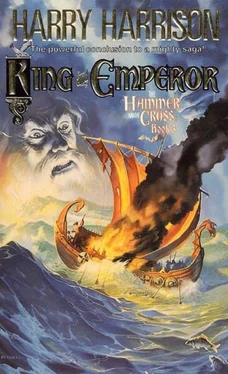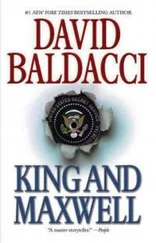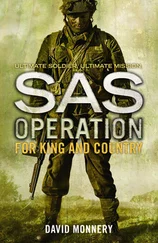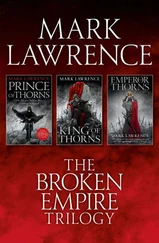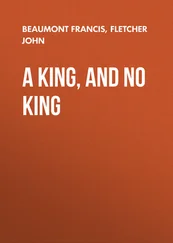The meeting had been held up for months by the discovery that in his eyes the Basileus of the Greeks considered himself the true heir of the Caesars and so Emperor of the Romans as well, while the Pope bitterly resented the termination “of Rome” being added to his title, regarding himself as the heir of St. Peter and the Pope of all Christians everywhere. Carefully formulas had been arranged, agreements reached not only as to what might be said but what might not under any circumstances be said. Like mating hedgehogs the powers drew together: delicately, gingerly.
Even the place of meeting had required a dozen proposals and counterproposals. Yet now, at last, the negotiators might look out over a bluer sea than any the barbarian kings of the North would ever view: the Adriatic, looking west towards Italy, at the place where once the mightiest of Roman administrator-emperors had built his palace for retirement—Salonae of Diocletian, called already by the Slavs filtering into the region, Split.
In the end, and after days of exhausting ceremonial, the two military leaders had lost patience and dismissed all their retinues of advisers and translators and chiefs of protocol. They sat now on a balcony overlooking the sea, a pitcher of resined wine between them. All serious issues were settled, the agreements at this moment being embodied by relays of scribes writing a massive treaty in multiple copies in gold and purple ink. The only possible check now could come from the religious leaders, who had retired to talk between themselves. And each had been given the strictest and grimmest of warnings by his earthly colleague and paymaster, to cause no trouble. For there were worse things that could happen to the Church, as the Imperator Bruno had said to his creature Pope John, than a misunderstanding over the exact nature of the Nicene Creed.
The emperors sat quietly, then, each with an ear cocked for the return of the churchmen, discussing their personal problems, as one ultimate ruler to another. It was perhaps the first time either had talked freely and frankly of such matters. They spoke in Latin, native to neither of them, but at least allowing them to communicate without intermediaries.
“We are alike in several ways, then,” mused the Emperor of the Greeks, the Basileus . The imperial name he had chosen, Basil I, showed a certain lack of imagination unsurprising in one with his history.
“ Hoc ille ,” agreed the Imperator of the West, Bruno Emperor of the Romans as he claimed, but in reality of the Franks, the Italians and most of all of the Germans. “That's it. We are new men. Of course my family is old and distinguished. But I am not of the blood of Charlemagne.”
“Nor I of the house of Leo,” agreed the Basileus . “Tell me if I am wrong, but as I understand it there is none of the blood of Charlemagne left.”
Bruno nodded. “None in the male line. Some were killed by their own vassals, like King Charles the Bald, on account of their failures in battle. I had to take measures against others myself.”
“How many?” probed Basil.
“About ten. It was made easier for me in that they all seemed to have the same names. Lewis the Stammerer, Lewis the German. Three sons for each of them, and still with the same names, Charles and Lewis and Carloman. And some others of course. But it is not quite true that there is none of the blood of Charlemagne left. He has great-great-granddaughters left. One day, when all my tasks are done, I may ally myself with one.”
“So your position will be stronger.”
A yet fiercer look crossed Bruno's craggy, rock-hewn face. He straightened up in his chair, reached behind him for the thing that never left him, that no negotiators could persuade him to abandon. The lance with the leaf-shaped blade, its plain head now shining once more with inlaid gold crosses, set on a shaft of ash-wood barely visible beneath gold and silver wire. His ape-like shoulders stretched as he swung it before him, thumped its shaft on the marble floor.
“No! My position could not be stronger in any way. For I am the holder of the Holy Lance, the lance with which the German centurion Longinus split the heart of our blessed Savior. He who holds it, he is the heir of Charlemagne, by more than blood. I took it in battle with the heathen, brought it back to Christendom.”
Reverently Bruno kissed the blade, laid the weapon down with tender care beside him. The bodyguards who had stiffened into readiness yards distant relaxed, smiled warily at each other.
The Basileus nodded, reflecting. He had learnt two things. That this strange count from the furthest extremity of the Franks believed his own fable. And that the stories they told of him were true. This man did not need a bodyguard, he was his own. How like the Franks to elect as their king the one the most formidable in single combat, not a strategos but a mere champion. And yet he might be a strategist too.
“And you,” probed Bruno in his turn. “You… put from his throne your predecessor, Michael the Drunkard, as he was called. I take it he has left no seed behind to grow rebellion.”
“None,” replied Basil curtly, his pale face flushing over the dark beard.
Basil's supposed second son, Leo, is in reality the child of Michael, Bruno's spies had reported. Basil killed the Emperor his master for cuckolding him. But in any case the Greeks needed an Emperor who could stay sober long enough to marshal an army. They are pressed by the Slavs, the Bulgars, even by your own foes, the Vikings raiding down the great rivers of the east. Not twenty years ago a Viking fleet menaced Constantinople, which they call Byzantium. We do not know why Basil allowed Leo to live.
“So. We are new men, then. But neither of us has old men waiting to challenge us. And yet both of us know we have many challenges, many threats. We and Christendom at once. Tell me,” Bruno asked, his face intent, “where do you see the greatest threat to us, to Christ, and to his Church? You yourself, I mean, not your generals and your advisers.”
“An easy question, for me,” Basil replied, “though I may not give the answer you expect. You know that your adversaries, the heathen of the North, the Vikings as you call them: you know that a generation ago they brought their ships up to Byzantium itself?”
Bruno nodded. “It surprised me when I learned it. I did not think that they could find their way across the Italian Sea. But then your secretary told me that they had not done so, had somehow brought their ships down the rivers of the East. You think they are your greatest danger? That is what I hoped…”
A lifted hand interrupted him. “No. I do not think that these men, fierce as they are, are the greatest menace. We bought them off, you know. The common folk say that it was the Virgin Mary who routed them, but no, I remember the negotiations. We paid them a little gold. We offered them unlimited use of the great municipal baths! They took it. To me they are fierce and greedy children. Not serious.
“No, the true danger comes not from them, mere pagani that they are, immature rustics. It comes from the followers of Muhammad.” The Basileus paused for wine.
“I have never met one,” Bruno prompted.
“They came from nowhere. Two hundred and fifty years ago these followers of their false Prophet came from out of the desert. Destroyed the Persian Empire. Took from us all our African provinces, and Jerusalem.” The Basileus leaned forward. “Took the southern shore of the Italian Sea. Since then that sea has been our battleground. And on it we have been losing. You know why?”
Bruno shook his head.
“Galleys need water, all the time. Oarsmen drink faster than the fish. The side that controls the watering-grounds controls the sea. And that means the islands. Kypros they took, island of Venus. Then Crete. After they conquered Spain, they seized the Balearics. Now their fleets press again on Sicily. If they take that—where will Rome be? So you see, friend, they threaten you as well. How long since their armies were at the gates of your holy city?”
Читать дальше
